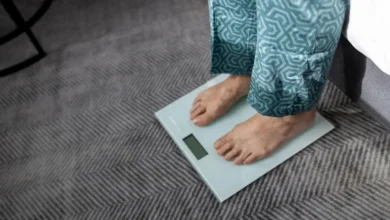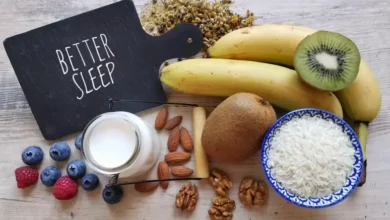Hydration and Health: Why Water Is More Important Than You Think
You’ve heard it before: “Drink more water.” It sounds simple, but staying properly hydrated is one of the most powerful and overlooked tools for improving your health, energy, mood, and even your eating habits.
Water isn’t just a basic need—it’s a key player in almost every function of the human body. And yet, many people walk around mildly dehydrated every day without realizing it.
Let’s explore why water matters so much, how dehydration affects you, and how to build better hydration habits without overthinking it.
Why Your Body Needs Water
Water makes up about 60% of your body. It’s essential for:
- Regulating body temperature
- Transporting nutrients and oxygen
- Aiding digestion and nutrient absorption
- Flushing out toxins and waste
- Lubricating joints
- Supporting healthy skin and organ function
- Helping you think clearly and maintain focus
Even mild dehydration can affect your energy levels, concentration, and physical performance.
Signs You May Be Dehydrated
You don’t have to be extremely thirsty to be dehydrated. Watch for these subtle signs:
- Fatigue or low energy
- Headaches
- Dry mouth or dry skin
- Dizziness or light-headedness
- Brain fog or difficulty concentrating
- Dark yellow urine or infrequent urination
- Constipation
- Muscle cramps
These symptoms are common—and often mistakenly blamed on other issues when a simple glass of water could help.
How Much Water Do You Really Need?
The standard advice is about 8 cups (2 liters) per day, but it depends on your:
- Age, weight, and activity level
- Climate and temperature
- Diet (high-protein, high-fiber, or salty diets need more water)
- Exercise and sweating
- Pregnancy or breastfeeding needs
A general guideline:
- Women: about 9 cups (2.2 liters) per day
- Men: about 13 cups (3 liters) per day
Pro tip: If your urine is pale yellow, you’re probably hydrated. Dark yellow means you need more water.
Water and Weight Management
Hydration supports a healthy weight in several ways:
- Water can reduce hunger signals (thirst is often mistaken for hunger)
- Drinking water before meals may help with portion control
- Staying hydrated supports digestion and metabolism
- Swapping sugary drinks for water reduces calorie intake effortlessly
Hydration and Exercise
When you move your body, you lose water through sweat—even in cool weather. Proper hydration before, during, and after exercise helps:
- Prevent fatigue
- Support muscle function
- Regulate body temperature
- Speed up recovery
Tips:
- Drink 1–2 cups of water 1–2 hours before a workout
- Sip water throughout your session
- Rehydrate afterward with water or an electrolyte drink if you’ve been sweating heavily
What Counts as Hydration?
Plain water is best—but it’s not your only option. Other hydrating sources include:
- Herbal teas
- Sparkling water (unsweetened)
- Fruits like watermelon, oranges, and strawberries
- Vegetables like cucumbers, lettuce, and celery
- Coconut water (watch for added sugar)
- Milk and plant-based milk
- Broth-based soups
Try to minimize sugary drinks, sodas, and alcohol, which can contribute to dehydration or add unnecessary calories.
How to Drink More Water Without Forcing It
Not a fan of plain water? Here are some easy tips to boost your intake:
- Keep a refillable water bottle with you at all times
- Add flavor with lemon, cucumber, mint, or berries
- Use a water tracking app or mark your bottle with time goals
- Set a hydration reminder on your phone or smartwatch
- Create a habit: drink a glass after waking up, before meals, and before bed
- Use a straw—it can make sipping more enjoyable and effortless
Final Thoughts: Small Habit, Big Impact
Drinking enough water might be one of the simplest things you can do for your health—and yet, it can make a huge difference in how you feel, think, and function.
Don’t wait until you’re thirsty. Make hydration a consistent part of your routine. Keep it easy, keep it accessible, and remember: every sip counts.
Your brain, body, and energy levels will thank you.

Hello! My name is Alan Teixeira and I am passionate about helping people live healthier, more balanced lives. From mindful eating to daily habits that promote physical and mental well-being, I believe that small, consistent changes can lead to powerful transformations.
I created this blog to share practical tips, reliable information, and thoughtful insights that can inspire you to take better care of yourself—with balance, mindfulness, and positivity.
If you are looking to improve your health, nourish your body, and build a lighter, more fulfilling routine, you are in the right place. Welcome!





